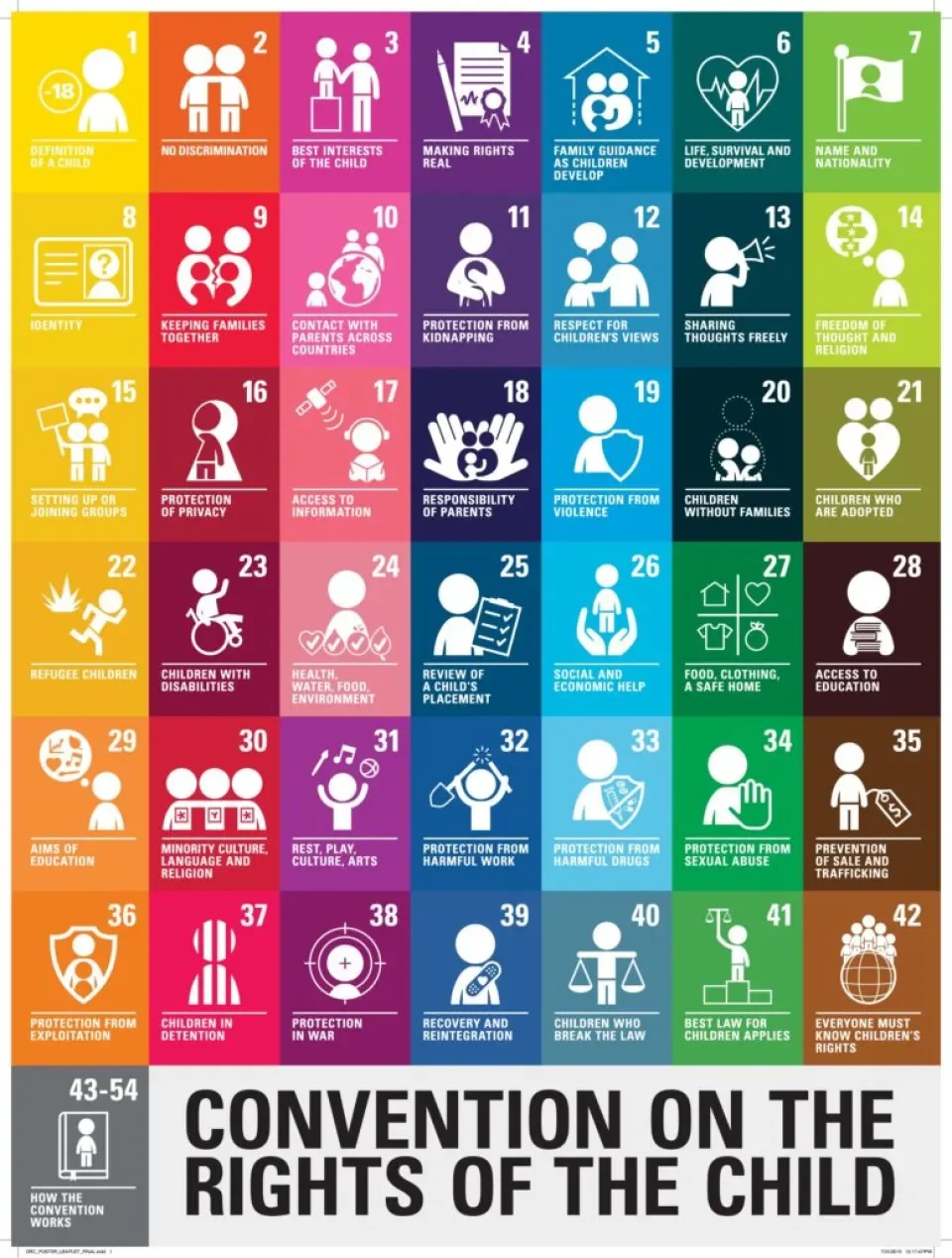
Student agency and voice

UNCRC Rights of Child
The United Nations Convention on the Rights of the Child (UNCRC) is a major international rights treaty that set out the specific rights of children. The UNCRC was adopted by the United Nations General Assembly in 1989 and Ireland ratified it in 1992.
The UN Convention consists of 41 articles, each of which details a different type of right. These rights are not ranked in order of importance, instead they interact with one another to form one integrated set of rights. A common approach is to group these articles together under the following themes:
Survival Rights: include the child's right to life and the needs that are most basic to existence, such as nutrition, shelter, an adequate living standard, and access to medical services.
Development Rights: include the right to education, play, leisure, cultural activities, access to information, and freedom of thought, conscience, and religion.
Protection Rights: ensure children are safeguarded against all forms of abuse, neglect, and exploitation, including special care for refugee children, safeguards for children in the criminal justice system; protection of children in employment; protection and rehabilitation for children who have suffered exploitation or abuse of any kind.
Participation Rights: encompass children's freedom to express opinions, to have a say in matters affecting their own lives, to join associations and assemble peacefully. As their capacities develop, children should have increased opportunity to participate in the activities of society, in preparation for adulthood.
The UN Convention includes four articles that are given special emphasis. These are also known as 'general principles'. These rights are the bedrock for securing the additional rights in the UN convention.
- that all the rights guaranteed by the UNCRC must be available to children without discrimination of any kind (Article 2)
- that the best interests of the child must be a primary consideration in all actions considering children (Article 3)
- that every child has the right to life, survival, and development (Article 6); and
- that the child's view must be considered and considered in all matters affecting him or her (Article 12)
This treaty is important to the work of the DCU CSN as our schools foreground their work in the UN Convention in the development of school cultures which foster the citizenship and agentic development of their students.
